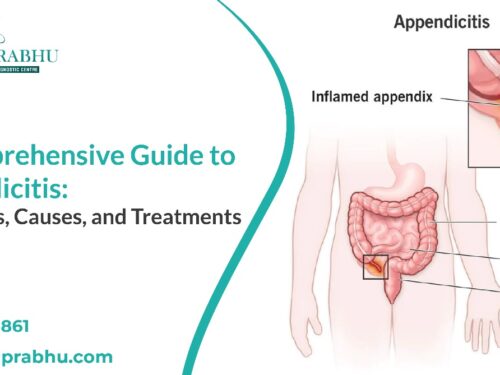
Located on the lower right section of your belly, the appendix is a small finger-like organ. It can become inflamed, often necessitating immediate surgical removal. Appendicitis can escalate rapidly, leading to swelling and pus formation inside your appendix. Fortunately, the appendix doesn’t play a vital role in your body and can be removed safely. It’s advisable to consult a qualified appendix surgeon in Navi Mumbai to discuss your treatment options.
What Happens When Your Appendix Bursts?
Appendicitis, inflammation of the appendix, is a medical emergency and requires immediate care. If left untreated for a long time, the inflamed appendix can burst, and the infection can spread throughout your body. It’s a life-threatening condition that requires immediate surgical removal of your appendix.
The risk of appendix burst increases with time. The longer you delay the treatment for appendicitis, the higher the risk of a ruptured appendix. A ruptured appendix occurs when an infection spreads outside the appendix. If bacteria enter the appendix, they start multiplying, causing swelling. The infection keeps escalating until the swollen appendix bursts and the pus oozes out into the abdomen.
Recovery and Survival Rates After a Burst Appendix
A burst appendix can have serious complications, some of which are life-threatening. The mortality rate of perforated appendicitis is 4.8 percent. Treatment for a ruptured appendix depends on where it has spread. If there’s an abscess, you must take antibiotics to drain it.
The best appendix treatment in Navi Mumbai is open surgery, which gives the surgeon a clear view of the infection and its severity. Recovery can take up to 6 weeks. Your doctor will provide instructions to speed up your recovery. For instance, you will be advised to avoid heavy lifting or strenuous exercise that can put excess pressure on the incision site.
The recovery can take longer if the doctor has inserted tubes into your abdominal cavity for abscess drainage.
Long-Term Effects and Complications
As mentioned earlier, the biggest complication of a ruptured appendix is peritonitis, a condition in which the bacteria from the appendix enter your abdominal cavity, causing severe symptoms like excess abdominal pain, fever, chills, fast breathing, and confusion.
The appendix ruptures between 48 and 72 hours after the inflammation. The condition usually causes pain in the lower abdomen, starting around the navel and settling in the lower abdomen. Other symptoms of appendicitis include:
- Bloating in your abdomen
- Difficulty passing gas
- Nausea and vomiting
- Pain in the belly while walking, climbing stairs, jumping, and practicing other physical activities.
A ruptured appendix can lead to sepsis or an abscess (a pocket of pus forming inside your abdominal cavity). The abscess needs to be drained through a tube inserted into your abdomen. Your doctor will prescribe antibiotics to clear the fluid.
If you have developed an abscess, your doctor will wait until it is drained completely before performing appendix removal surgery.
The burst appendix is an emergency. Your recovery and the survival rates for appendicitis depend on how soon you get the treatment. The condition requires quick diagnosis and immediate treatment to prevent complications.

